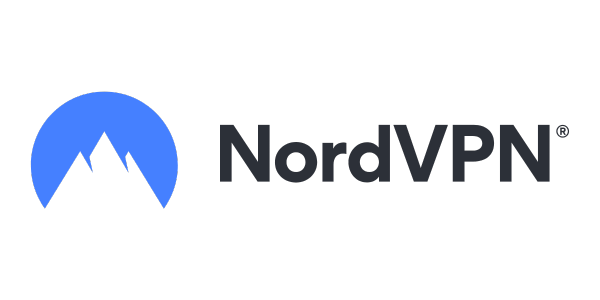 If you care about online privacy it is imperative to stay safe from DNS leaks. DNS is short form for Domain Name System and, in short, it is the tool used to translate domain names such as www.bestreviews.net into a specific numerical IP addresses as in 123.456.789.000. However, not all DNS connections are completely safe, as leaks may happen when your device communicates with a determined server. As a countermeasure, many VPN providers already feature DNS leak protection on all supported devices, because they recognize it as a major privacy threat. In addition, many ISPs assign their respective customers a specific DNS server which they can control and use for logging and recording all your internet traffic.
If you care about online privacy it is imperative to stay safe from DNS leaks. DNS is short form for Domain Name System and, in short, it is the tool used to translate domain names such as www.bestreviews.net into a specific numerical IP addresses as in 123.456.789.000. However, not all DNS connections are completely safe, as leaks may happen when your device communicates with a determined server. As a countermeasure, many VPN providers already feature DNS leak protection on all supported devices, because they recognize it as a major privacy threat. In addition, many ISPs assign their respective customers a specific DNS server which they can control and use for logging and recording all your internet traffic.
What is a DNS Leak?
Every time you enter a URL, your device – whether it’s a computer, smartphone or tablet – contacts a DNS server and requests the IP address. This is where DNS leaks can occur. Whenever a leak is happening, it means that your traffic is not being successfully routed through the anonymity network. This means that your traffic is wide open for monitoring by your ISP and any third parties, and almost anyone is able to log your activity. Having DNS exposed won’t cause any damage if only the ISP sees it (unless you abuse the bandwidth), but it can also lead to serious implications. Wrongdoers have the means to easily replace the DNS server and send you a wrong IP address for a certain site. In short, you may get redirected to a proxy site or a phishing site that steals your private data. VPNs do prevent this as they provide secure end-to-end tunnels for your information to pass.
Best VPN Services of 2024
| Rank | Provider | Info | Visit |
1
|
Editor's Choice 2024
|
|
|
2
|

|
|
|
|
3
|
|
|
Fixing a DNS Leak
Before you try fixing a DNS leak, you should check whether you are affected or not. Fortunately, a quick visit to DNSLeak.com (a service brought to you by Private Internet Access) or the commonly known DNSLeakTest.com will tell you in a couple of seconds if your connection is leaking. If on the results you see your own country and ISP listed, you’ll know that your ISP can monitor your connection.
Using a VPN with proper DNS leak prevention will assure that the DNS request is directed to an anonymous DNS server through your VPN, and not directly through your browser. This is what keeps your ISP in the dark since you are now using only the DNS server provided by the VPN and not the one provided by your ISP. If you are connected to a VPN but still experience DNS leaks, then there are also a few steps mentioned on the aforementioned websites that will help you manually fix them.
Recommended VPNs with DNS Leak Protection
IPVanish
 IPVanish is a top ranked VPN provider here on Best Reviews for quite some time now, thanks to the strong features it includes, and DNS leak prevention is surely one of them. Seasoned IPVanish users should not experience any kind of DNS leaks, because the system automatically connects you to a safe DNS server. In case you’re still leaking data there is a quick and easy method for fixing it. All you have to do is to manually assign 198.18.0.1 and 198.18.0.2 as the primary and secondary DNS IPs or disable IPv6 (IPVanish only supports IPv4 and, therefore, an IPv6 connection would happen outside the VPN network) as instructed by the company.
IPVanish is a top ranked VPN provider here on Best Reviews for quite some time now, thanks to the strong features it includes, and DNS leak prevention is surely one of them. Seasoned IPVanish users should not experience any kind of DNS leaks, because the system automatically connects you to a safe DNS server. In case you’re still leaking data there is a quick and easy method for fixing it. All you have to do is to manually assign 198.18.0.1 and 198.18.0.2 as the primary and secondary DNS IPs or disable IPv6 (IPVanish only supports IPv4 and, therefore, an IPv6 connection would happen outside the VPN network) as instructed by the company.
NordVPN
 Known as the “super safe double encryption master”, NordVPN also provides a DNS leak prevention functionality that is as simple as clicking a button. In fact, according to the company, the DNS leak protection is turned on by default, so you shouldn’t experience any leaks the moment you connect to a server. But if you want to make sure the DNS leak protection is switched on, you’ll be able to access this feature in your NordVPN client. All you need to do is go to the client’s settings and see if the box labeled “DNS leak protection” is checked. It couldn’t be easier and you can switch back and forth anytime.
Known as the “super safe double encryption master”, NordVPN also provides a DNS leak prevention functionality that is as simple as clicking a button. In fact, according to the company, the DNS leak protection is turned on by default, so you shouldn’t experience any leaks the moment you connect to a server. But if you want to make sure the DNS leak protection is switched on, you’ll be able to access this feature in your NordVPN client. All you need to do is go to the client’s settings and see if the box labeled “DNS leak protection” is checked. It couldn’t be easier and you can switch back and forth anytime.
ExpressVPN
 If you checked our top VPN rankings you’ve certainly noticed the presence of ExpressVPN as this is in fact one of our favorite VPN providers and the built-in smart DNS was one that pleased us the most. While making use of this VPN you will be automatically connected to ExpressVPN’s DNS servers which will guarantee a much higher level of safety. Nonetheless, just like its previous contender, this option is presented to you via a little tick too, which means that no manual configurations are required. Start your ExpressVPN software, connect to a server and run a DNS leak test to find out.
If you checked our top VPN rankings you’ve certainly noticed the presence of ExpressVPN as this is in fact one of our favorite VPN providers and the built-in smart DNS was one that pleased us the most. While making use of this VPN you will be automatically connected to ExpressVPN’s DNS servers which will guarantee a much higher level of safety. Nonetheless, just like its previous contender, this option is presented to you via a little tick too, which means that no manual configurations are required. Start your ExpressVPN software, connect to a server and run a DNS leak test to find out.
Best VPN Services of 2024
| Rank | Provider | Info | Visit |
1
|
Editor's Choice 2024
|
|
|
2
|

|
|
|
|
3
|
|
|
Get the Best VPN Deals
Want to stay up to date on the latest VPN news and discounts? Get exclusive offers and deals sent straight to your inbox!